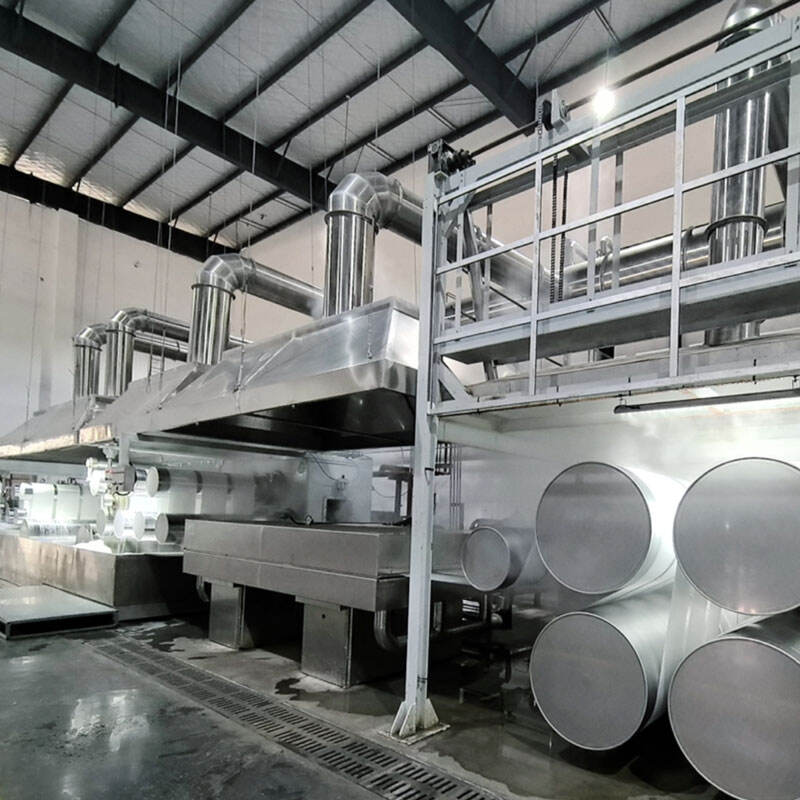High-quality polyester staple fiber (PSF) is crucial across various industries including textiles, automotive, and insulation due to its versatile applications. In the textile industry, PSF is valued for producing a wide range of durable fabrics that are designed to meet evolving consumer preferences. In the automotive sector, the fiber contributes to the development of cost-effective and high-performance components. Additionally, its insulation properties make it an ideal choice for energy-efficient building materials. Market research highlights a rising consumer demand for quality products, steering the polyester staple fibre market towards steady growth. According to industry forecasts, the polyester staple fiber market is expected to witness significant expansions in the coming years.
Fiber quality is determined by several core attributes such as strength, durability, and uniformity, which collectively impact the performance of end products. High tensile strength ensures that the fiber can withstand tensile stress, making it ideal for heavy-duty applications. Durability offers longevity, crucial for products like automotive components that require a long service life. Uniformity enhances fabric texture and appearance, improving consumer satisfaction. According to experts from industry associations, these attributes significantly influence market competitiveness and consumer retaining power. By maintaining high standards, manufacturers can differentiate their products in a crowded market and meet stringent performance demands.
Ensuring high-quality polyester staple fiber starts with sourcing premium raw materials. Key components like polyethylene terephthalate (PET) and necessary additives must meet high-grade standards as dictated by leading suppliers. Reputable suppliers often provide guidelines that help manufacturers choose the correct material grades, ensuring the fibers produced can withstand rigorous applications across various industries, such as textiles and automotive. According to Divyadhan Recycling Industries Limited's practices, maintaining an in-house production line for PET flakes underscores the importance of control over raw material quality.
Implementing robust quality control measures throughout the production process is equally essential. Regular testing for consistency and defects is critical to meeting industry standards. Best practices suggest employing quality management frameworks, such as ISO 9001, to systematically check and improve processes. Industry leaders advocate for a combination of advanced testing machinery and comprehensive training programs to maintain high standards in fiber quality. These strategies ensure that the final product—whether it's used in textiles or insulation—delivers optimal performance, thereby meeting increasing consumer demands for reliability and durability in polyester staple fiber products.
Recent advancements in fiber processing technologies, such as melt-blown and spinning techniques, have revolutionized the polyester staple fiber (PSF) industry. These innovations are pivotal in enhancing both the efficiency and quality of fiber production. Melt-blown techniques, in particular, allow for the production of fibers with superior filtration capabilities and uniformity, which are crucial for various industrial applications. Spinning techniques, such as jet spinning, improve fiber quality by ensuring more precise fiber diameter control and a smoother finish, ultimately reducing defects in the final product.
Moreover, the integration of technology in fiber production has had a transformative impact on fiber quality, thanks to real-time monitoring systems and automation. These systems facilitate continuous oversight of the production process, enabling early detection and rectification of inconsistencies, which results in higher quality outputs. For instance, manufacturers who have adopted these advanced systems report significant improvements in fiber strength and elasticity, leading to a more diverse range of applications in textiles and nonwoven products. According to case studies, companies that have integrated automation have seen substantial reductions in production costs while maintaining consistent quality, demonstrating the essential role of technology in modern PSF manufacturing.
When analyzing the success stories in polyester staple fiber production, several manufacturers emerge as industry leaders due to their high-quality production methodologies. Companies such as Divyadhan Recycling Industries Limited (DRIL) stand out for their commitment to environmental sustainability while maintaining superior production standards. DRIL transforms post-consumer PET bottles into recycled polyester staple fiber (R-PSF) and boasts a production capacity of 18,000 metric tons annually, using advanced Chinese manufacturing machinery. This capability, alongside vertical integration for ensuring top-quality raw materials, positions DRIL as a pioneer in using recycled content for fiber production.
Beyond individual manufacturing success, lessons from industry leaders provide valuable insights into maintaining high production quality. Key strategies include the vertical integration of production processes to control raw material quality and the adoption of cutting-edge technology to enhance efficiency and product output. According to analytical reports, the focus should be on real-time monitoring systems and automation to avert common pitfalls such as overproduction and resource waste.
Ultimately, successful polyester fiber production hinges on leveraging technology and innovation to consistently deliver quality. By emulating proven methodologies and strategies from leading manufacturers, other players in the industry can achieve similar success, significantly contributing to the overall growth and sustainability of the polyester staple fiber market.
The Hollow Conjugated Siliconized Polyester Staple Fiber Machine stands out in the market with its advanced spinning and drawing setup. This machine is engineered to enhance fiber quality through a comprehensive process that includes PET raw material conveying, screw extrusion, and meticulous winding and oiling stages, ensuring superior fiber durability and texture. Furthermore, its role in improving the fiber's quality contributes significantly to higher customer satisfaction by ensuring the end products are remarkably consistent and reliable.

 Hot News
Hot News2024-07-25
2024-07-25
2024-07-25